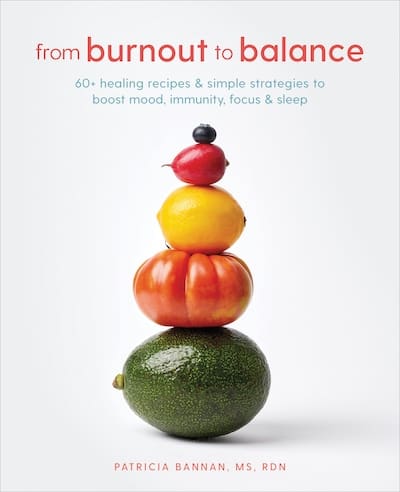Brain fog can be worrisome, especially if you’ve never experienced it before. So here are some useful strategies to get rid of brain fog and clear your mind.
Much like energy or good hair days, focus can feel out of reach no matter what you do. Sometimes you know why you can’t concentrate (a breakup, grief, postpartum hormones, parenting, and working during a pandemic) and other times you do everything “right” and still feel pulled in a million different directions.
A lack of focus and mental clarity were early signs that something was off for me, and they’re still reminders that I’m pushing too hard and need a break. I might lose my phone for the third time in a week. Or I’ll find a can of chickpeas in the fridge. Sometimes I’ll even run the coffee maker without adding water (facepalm!). Can you relate?
A common side effect of burnout, mental fatigue or “brain fog” manifests as sudden mental confusion, inability to focus, and poor memory. Mental fatigue can hamper your clarity to varying degrees, and it’s always a red flag. However, you don’t have to panic. Keep reading to understand the causes of brain fog as well as some tips for overcoming it.
What Causes Brain Fog?
While it’s easy to pinpoint some causes of brain fog, such as dehydration or lack of sleep, others are a bit trickier to recognize. Some might even require a trip to the doctor. Certain medications might leave you groggy, and hidden hormonal imbalances could also be the reason. Illness can also be a factor, and with flu season nearly upon us, it’s crucial to take protective measures for your health. COVID-19 in particular has been associated with long-term brain fog, so take the steps to keep yourself healthy.
However, some contributors to brain fog are a little easier to work with. These include a poor diet or a recent increase in stress, though untreated stress can lead to a more serious problem: burnout. If you’re finding it difficult to determine whether you’re experiencing stress or burnout, I’ve written about some key differences between the two in an earlier post.
Burnout and Brain Fog
Burnout can seriously affect your health and can contribute to those foggy feelings of confusion and detachment. The brain fog that comes with burnout can be terrifying. It goes beyond the usual forgetfulness that happens when you go into a room and can’t remember why. (That’s called the doorway effect, and it’s nothing to worry about.) This burnout-induced haze might have you googling the symptoms for early-onset dementia or scouring your family history for Alzheimer’s. It’s not funny—and it’s a common symptom of burnout.
It’s important to regularly evaluate your schedule, making sure you aren’t biting off more than you can chew, and also ensuring that you have plenty of techniques and resources to re-center your focus.
What are Common Brain Fog Symptoms?
On days you have brain fog, you might feel as though you’re walking through life in a daze. You might feel extreme fatigue—unable to think about anything but going back to bed!
If you do push through the tiredness, you might feel dizzy, confused, even nauseous. Your memory might not be all there, causing you to forget even the simplest of things, like your own phone number or daily schedule.
How Long Does Brain Fog Last?
The duration of brain fog differs for every person. Sometimes it might go away within a few days, or other times it might last for months. However, it’s not a life sentence—there are strategies you can add to your daily life to help you reduce your brain fog.
8 Ways to Get Rid of Brain Fog
Thankfully, there are ways to improve your mental clarity so you can return to your normal self. Most importantly, you should recognize that patience is key, and that your brain fog won’t always resolve overnight. Although it might seem difficult to push through the fog day after day, before long you’ll find yourself much more clear-headed.
1. Take Steps to Improve Mindfulness
With brain fog, whole days can seem to pass in a blur. Take a few minutes each evening before bed to reflect on the events of the day, focusing on your emotions.
- How did you feel in the morning?
- How about after lunch?
- Were there parts of the day that you felt better, or worse?
Taking the time to truly understand your day-to-day moods and reactions can help you become more focused and stable in the long run.

2. Practice Meditative Techniques
It’s easy to feel stressed when your to-do list gets longer and longer each day. Groceries, laundry, emails—it never ends! However, taking just a minute or two every few hours to breathe deeply can dramatically reduce your anxiety, keeping you from getting into a negative cycle of increasing brain fog and stress.
Other possibilities include making a calming mug of tea, standing in the sun for a few minutes—which will also increase your Vitamin D!—and engaging in a skill or hobby you like to do, such as playing an instrument or doing the daily crossword.
3. Sleep On It
Waking up groggy can put a damper on the whole day, and chronic under sleeping can negatively affect your life in more ways than one. Multiple studies have shown that sleep disruptions are detrimental to health, increasing your risk of obesity and diabetes, causing inflammation, and worsening your overall quality of life. Getting a full night’s sleep helps you stay alert, awake, and healthy.
4. Change Up Your Routine
Zoning out in front of a laptop might be a common scenario for many working adults, but spending long chunks of time sitting can be extremely detrimental—not only in the case of brain fog but also for your overall health.Instead of coming home and immediately collapsing onto the couch in front of the TV, try a new recipe, read a chapter of a new book, or even start a new hobby!
What’s most important is finding something that you can connect to and engage with, helping reduce your brain fog.
5. Increase Your Physical Activity
Not everyone has time to get to the gym every day, which is why many health professionals are recommending “exercise snacks.”
These are short bursts of physical activity that you can complete throughout the day rather than at one specific time. You don’t need any fancy equipment or clothing—all you need is your own body! Some examples of “exercise snacks” include:
- Taking the stairs instead of the elevator, even for just one floor.
- Parking further away from your destination to lengthen your walk.
- Tapping your feet or legs under the desk while you work.
- Taking short breaks from your work to walk around and stretch.
Learn about “exercise snacks” and how to incorporate them into your life.

6. Improve Your Diet
You don’t have to get too detailed, but keeping a small food journal can help you identify eating patterns that might contribute to brain fog. Perhaps you might notice you feel worse on days when you skip breakfast, or adding in that afternoon snack might give you that extra hour of clarity.
7. Ask for Help (Yes, It’s Okay!)
It may seem daunting, but it’s okay to ask for help. You weren’t created to carry the world on your shoulders. So whether it’s starting small by talking to a friend, or cutting to the chase and finding a health care professional, you’re taking the right steps. Here are a few places to start:
- Consider talking to your healthcare provider if your signs are serious.
- Seek help from a registered dietitian nutritionist to adjust your diet.
- Reach out to a friend for buddy walks or emotional support.
Remember to go easy on yourself, and realize that each day is a bit different. The people you lean on can also change as your symptoms evolve.
8. Most Importantly, Take it Day by Day
You can’t solve anything overnight, but by including these techniques in your life—and by being patient—your brain fog will gradually dissipate. Returning you to your normal, alert self. When you’re feeling demotivated, think about how you felt at the start of your journey. You’ve come too far to give up now. You can do this!
Read some of my top tips about how to feel more energized throughout the day. Plus, sign up for my free bonus chapter that includes ways to boost energy.
If the talk about burnout felt all too familiar, check out my book for more information on how to enhance your focus with lifestyle strategies, certain foods, and delicious recipes.





